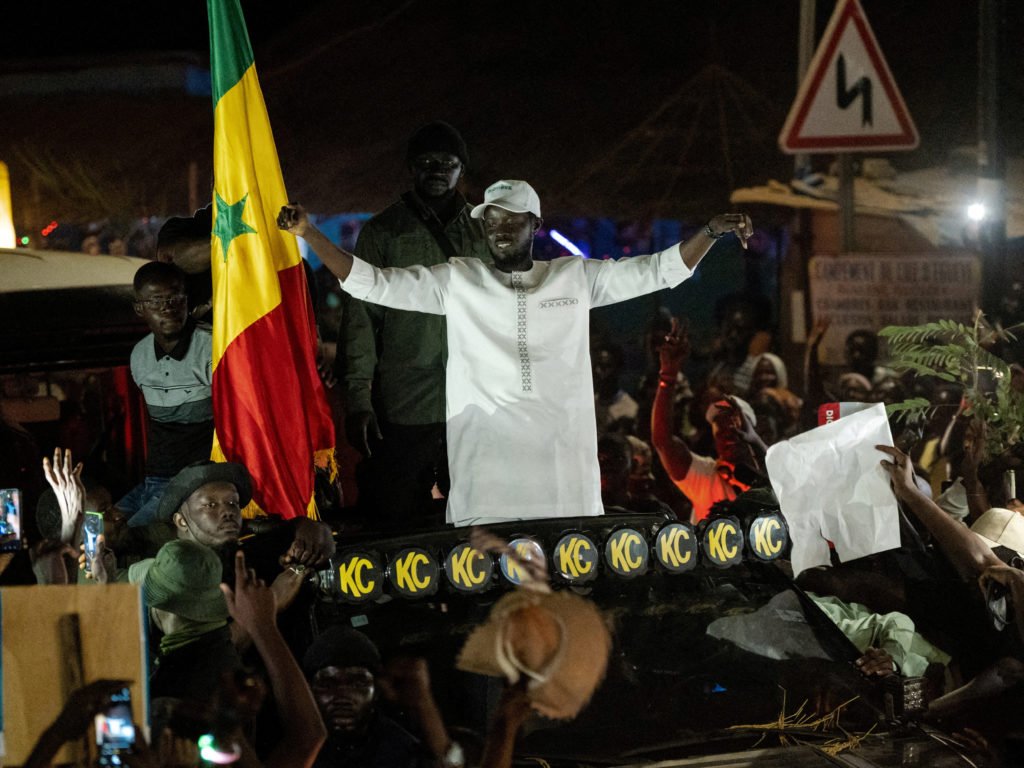Senegal Holds Presidential Election After Delay: Voters Head to Polls
Voting commenced in Senegal on Sunday for a presidential election that had been delayed, with many citizens hopeful that it will bring about much-needed change following a tumultuous political period marked by violent protests and growing opposition sentiment.
The outcome of the election holds significant implications as it could signal the end of a regime that, despite implementing investor-friendly policies, has struggled to alleviate economic challenges in one of West Africa’s more politically stable democracies. Senegal stands on the brink of becoming an oil and gas producer, adding urgency to the need for effective governance.
Nineteen candidates are competing to succeed President Macky Sall, who is stepping down after completing two terms, amidst unrest over the prosecution of opposition leader Ousmane Sonko and suspicions of attempts to extend his tenure beyond constitutional limits.
For the first time in Senegal’s history, the incumbent is not on the ballot. The ruling coalition has endorsed former Prime Minister Amadou Ba, aged 62, as its candidate. Approximately 7.3 million registered voters are expected to cast their ballots, with long queues forming in Dakar hours before polls opened.
Alioune Samba, a 66-year-old fisherman, expressed his desire for change, citing the high cost of living and economic hardships faced by Senegalese citizens.
Voting centers are scheduled to close at 1800 GMT, with provisional results anticipated by March 26. Notably, Sonko, who was recently released from jail, was disqualified from running due to a defamation conviction. He is backing Bassirou Diomaye Faye, co-founder of the dissolved Pastef party, under the joint slogan “Diomaye is Sonko.”
Several prominent politicians and opposition candidates have thrown their support behind Faye’s candidacy, framing the election as a choice between continuity and change.
Ex-Dakar mayor Khalifa Sall, entrepreneur Anta Babacar Ngom, and Idrissa Seck, the runner-up in the 2019 election, are among the other contenders. Ngom emphasized her commitment to restructuring the economy and safeguarding democratic rights.
With no opinion polls available, it remains uncertain whether any candidate will secure the necessary majority to avoid a runoff election.
President Sall’s decision to delay the election until December, initially scheduled for February 25, sparked unrest and raised concerns about authoritarian tendencies. The Constitutional Council intervened, mandating that the vote must occur before Sall’s mandate expires on April 2.
Following his vote, Ba appealed for peace and urged the Senegalese people to await the election results calmly and resume their daily lives. However, he faced criticism and was booed as he exited the polling station.
Sonko, popular among urban youth, expressed confidence in Faye’s victory and pledged to address corruption and prioritize economic sovereignty. Nonetheless, concerns have been raised about Faye’s proposed renegotiation of oil contracts, potentially affecting investor confidence in Senegal’s economic prospects.


















